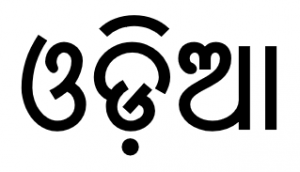Language/Odia/Grammar/Possessive-Pronouns
Introduction
Welcome to the “Complete 0 to A1 Odia Course”. In this module, you will learn about the Odia Possessive Pronouns. Possessive pronouns are words used to indicate ownership or possession of a noun. For example, “My”, “Your”, “His” or “Hers”. Possessive pronouns are very important in order to express oneself correctly when describing things that belong to us or to someone else. By learning these pronouns, you will be able to speak more fluently and effectively in Odia.
Personal Pronouns in Odia
Before we discuss Possessive Pronouns, it is important to briefly review Odia Personal Pronouns, which are used to represent the grammatical person in a sentence. Odia Personal Pronouns are:
| Odia | Pronunciation | English Translation |
|---|---|---|
| ମୋର | mora | My |
| ତୋର | toro | Your |
| ତାଙ୍କ | tank | His/Her/Its |
| ଆମ | am | Our |
| ତୁମ୍ବ | tumba | Your |
| ସେହି | sehi | Their |
What are Possessive Pronouns?
Possessive pronouns are words that replace or stand in for nouns, indicating a relationship of possession or ownership. They can stand alone or be used to modify a noun. Let's take the sentence, "That is your car", as an example. The pronoun "your" is used to replace or stand in for the noun "car", indicating that the car belongs to you. In Odia, we use the Possessive Pronouns which function similarly as English with some minor differences.
Odia Possessive Pronouns
Like personal pronouns, possessive pronouns can be used to show the relationship between the speaker and the person or thing they are referring to. Here are the Odia possessive pronouns:
| Odia | Pronunciation | English Translation |
|---|---|---|
| ମୋର | mora | Mine |
| ତୋର | toro | Yours |
| ତାଙ୍କ | tank | His/Her/Its |
| ଆମ | am | Our |
| ତୁମ୍ବରେ | tumbaru | Yours |
| ସେହିଙ୍କ | sehink | Theirs |
Notice how the Odia Possessive Pronouns are similar to the personal pronouns, with little changes by adding -re e.g. tumbaru, sehink. This pattern occurs only for the second person singular and third person plural possessive pronouns.
Using Possessive Pronouns in Odia Sentences
Now that we know what Odia Possessive Pronouns are, let’s look at how to use them in sentences.
Using Possessive Pronouns to Show Ownership
Possessive Pronouns are used to show ownership in a sentence. Here are some examples:
- ଯାନ୍ତୁ ମୋର ପୁସ୍ତକ।
It is my book. (lit. Let it be my book.)
- ନୀଲମାଳି ତାଙ୍କ ଘର।
Neelamali is his house. (lit. Let it be his house.)
- ଆପଣଙ୍କ ଘର କେମିତି?
How is your house?
- ତୁମରେ ଏହି ଚାବିଟି ଲ଼ହବନ୍ତୁ।
This key is yours. (lit. Let this key be yours.)
- ଗୋତେ ତୁଙ୍କୁ ଆମର ସେକ୍ରେଟ ସେଫ୍ ଖୋଲିବା ପାଇଁ ପାସ୍ଓର୍ଡ ଦେବ।
I will give you the password to our secret safe. (lit. For opening our secret safe, I will give you the password.)
Using Possessive Pronouns to Show Family Relationship
Possessive Pronouns can also be used to show family relationship in a sentence.
- ରମେଶ୍ବର ଆମର ବାପ।
Rameswar is our father.
- ମୋରାଶି ତାପାଣୀ ମୋର ମା।
My grandmother is my mother.
- ମୁଁ ତୋଙ୍କୁ ଆପଣ ଭାଇବନ୍ତୁ।
I want to be your brother/sister.
Conclusion
In this lesson, you have learned about Possessive Pronouns in Odia. You have seen how they are used to show ownership or possession of a noun, and how they can represent family relationships. You have learned the Odia Possessive Pronouns and how to use them in simple sentences. Keep practicing and you will soon become more confident in your ability to use possessive pronouns, which will make your Odia more fluently and effectively. Keep up the good work and continue your journey to learn Odia.

